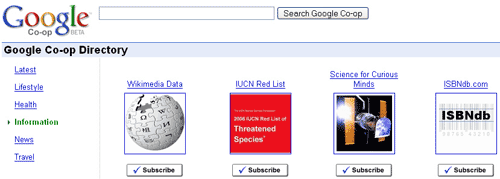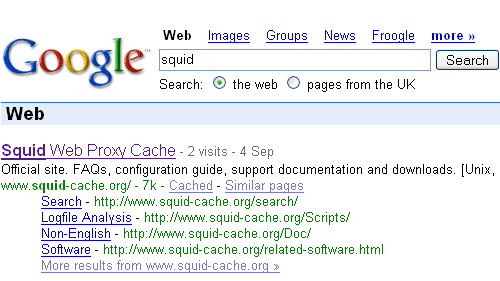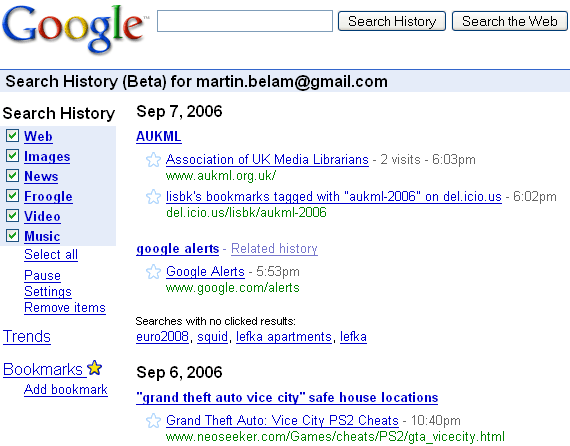Smarter searching: liberating information from the Internet - Google's personal search services
![]() Download a print version of this article
Download a print version of this article
This post is part of a series entitled "Smarter searching: liberating information from the Internet", based on my presentation at the 2006 AUKML Conference in Edinburgh
Personalising your search experience
Another interesting variation on standard search offered by Google is Google Co-op. This allows a user to 'subscribe' to a specific search source. When there are results from that source for a specific search, they are displayed at the top of Google's search results.

There are already a whole set of scientific and informational 'sources' in Google's Co-op directory, and new ones can be submitted. At the moment, though, it is a little complicated to put together a new source together yourself.

The Holy Grail of search is for an engine to be an effective mind reader - understanding exactly the user's intentions with their words at that particular moment.
There are a couple of different approaches to tailoring the results of a search to an individual. Google has gone down the route of personalised search. When I'm logged in to Google, I don't necessarily get the same results as other people for my searches. The results are based upon my search history, and the sites I have previously visited. For example, when I search for 'squid', I get information about the Squid proxy web server and caching software, rather than about anything with tentacles.

Of course, as someone who used to do search engine marketing in order to try and gain #1 rankings, the thought that not everybody is seeing the same results set is pretty horrifying - how do you ever know that you are 'top' of Google anymore?
Another thing that the personalised Google search service does is record all of your search history. You can view a page that lists all the searches you have made whilst logged in, and see any URLs that you have visited after looking at a results page. It also records the searches you made where you didn't click on any results.

In case you have any privacy concerns, Google helpfully have provided a 'pause' function, which will suspend recording your search activity - so, for example, you can hide from your partner whatever research you are doing about your forthcoming anniversary present. However the reason furore over AOL's release of search data should remind everyone that the search terms you use are not just necessarily between you and your computer.
Although billed as 'personal', there is nothing to stop this system could be used by a whole department using one login, to shape a 'personal' search around their collective information gathering requirements.
In the next part I'll be looking at Yahoo!s "social" search services.